Novatech Elite Spectre Review
October 3, 2019 | 14:00
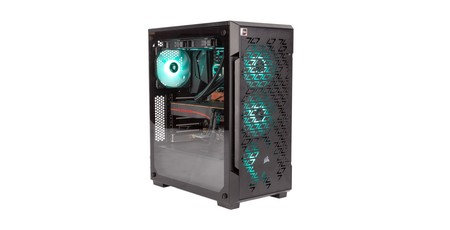
Performance Analysis
We’ve updated our system benchmarking to align it with our current suites elsewhere, which means the majority of results from older systems are not comparable. That said, we can still contextualise the results of this PC against what we see from the individual components in our own testing, and we’ve added results from three other PCs from this year in the 3DMark and PCMark workloads, which are still comparable.
Starting with games, the frame rates seen in Metro Exodus and Total War: Three Kingdoms confirm both 1080p and 1440p are no trouble for this system. You can expect >60fps at 1080p nearly all the time, and at 1440p you’ll still be hitting the 40-60fps sweet spot very regularly, if not higher. Performance aligns very closely with what we see from the RX 5700 XT reference card in our own test system (which uses a Core i9-9900K at 4.9GHz), so the CPU is not holding the card back. That said, these games are deliberately GPU-intensive; if you’re playing lighter games at 1080p, the R7 3700X will lose a few FPS relative to Intel CPUs but not by any amount you’re likely to notice.
While the CPU-limited HandBrake and Cinebench scores sit alone in the graphs, we know from our own CPU testing that AMD is relatively excellent here. For instance, this system scores 4,731 in Cinebench and 77s in HandBrake, and the much pricier Core i9-9900K sits at 4,906 and 80s respectively in our CPU suite. The Ryzen 7 3700X is a CPU that strikes a good balance between content creation and gaming, even without overclocking.
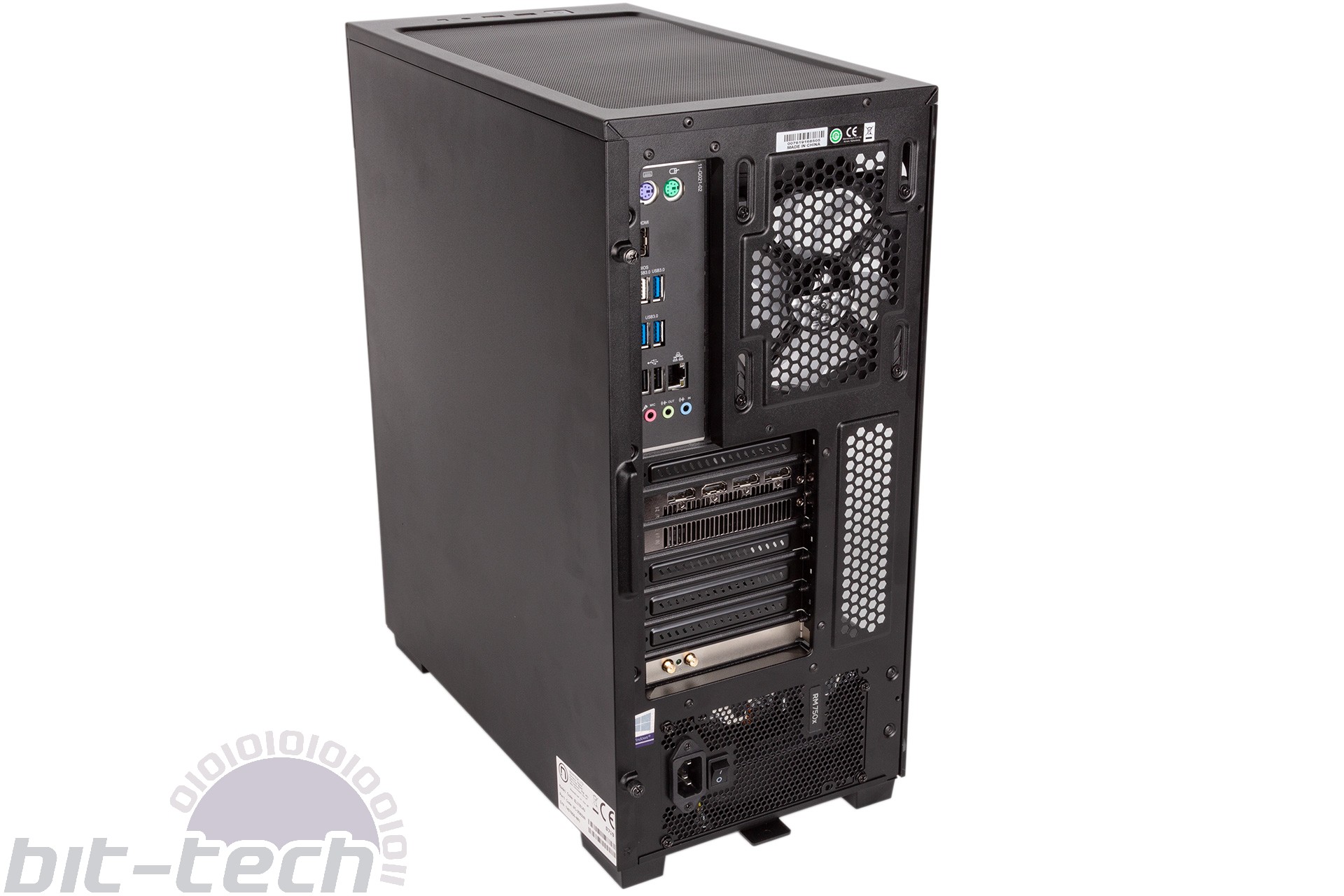
PCMark 10 includes GPU acceleration, and here the Novatech Elite Spectre is miles ahead of the next closest system, which uses the RTX 2060 GPU.
CrystalDiskMark reveals peak SSD speeds well beyond any PCIe 3.0 drive, with read and write speeds coming in at nearly 5GB/s and over 4.2GB/s respectively. That said, these only really apply when performing massive data transfers, in which case it’s highly likely a second drive is going to be the bottleneck (unless it too is PCIe 4.0). Even if you’re copying massive files within the same drive, you might see some benefit, but you’re then performing read/write operations simultaneously, so the benefits will not be as high.
The random read and write results are more relevant to home users, and these do not show any significant improvement over decent PCIe 3.0 drives. It’s these results that are most indicative of the speed users will “feel” during day-to-day use. After all, PCIe 4.0 does not introduce any improvement in latency – just bandwidth. This is made clear in the PCMark 8 storage traces, where the Novatech Elite Spectre is no faster by having a PCIe 4.0 drive than other systems that have PCIe 3.0 ones.
Our stress testing throws up a peak power consumption figure of 403W, which is well within the capabilities of the PSU and should keep it operating at near-peak efficiency too. It also leaves plenty of headroom for those who might overclock things manually. An idle reading of 90W is fine.
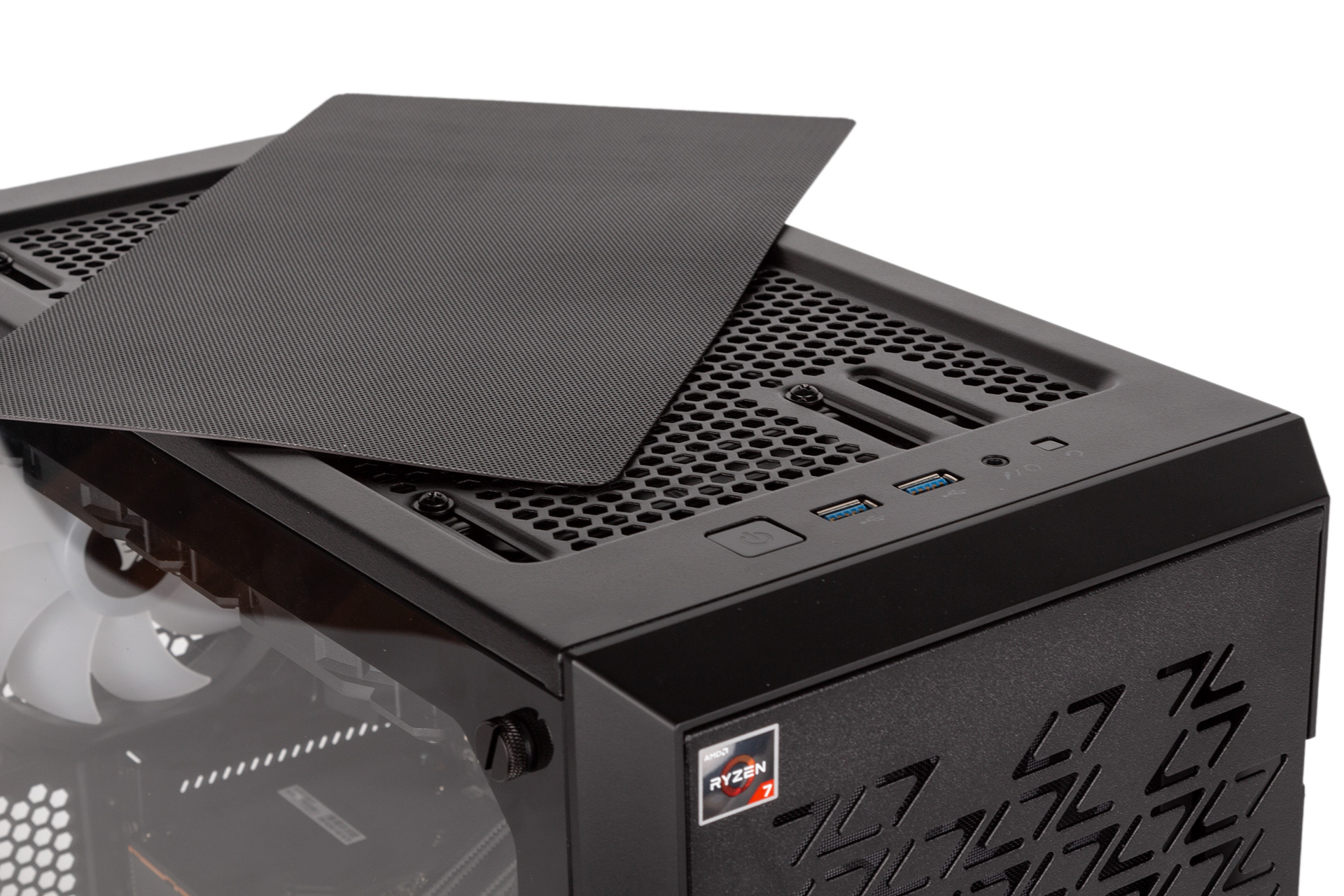
The CPU never climbed above 70°C during stress testing, and the CPU cooler fans didn’t have to get too loud to maintain this state of affairs. An all-core clock speed of around 4GHz was observed, which is what we saw in our own testing using more powerful cooling, so everything in this department checks out.
Even three intake fans running at full speed in a high-airflow case are not enough to make up for the RX 5700 XT reference cooler’s shortfalls, however, and GPU stress testing sees it quickly hit its maximum temperature of over 80°C, which introduces some clock speed degradation and a lot of fan speed ramp-up to the point where it gets very noisy. As we said before, do not buy this system without changing this to one of the custom-cooled options that Novatech offers.
Conclusion
There are typically three main pillars of assessment when it comes to prebuilt systems: component choice, quality of assembly, and value for money.
In terms of component choice, Novatech could definitely do better, but we’re not going to nitpick much, as its configuration engine is easy to navigate and has plenty of alternative choices. None of the components used introduce any major bottlenecking in terms of performance, and the CPU cooling is well handled too. We also like the commitment to Corsair’s RGB ecosystem via the use of additional SP120 RGB Pro fans.
Our main criticisms would be not having USB Type-C or USB 3.1 Gen 2 connectivity of any kind either on the case or the motherboard, using an expensive PCIe 4.0 SSD that brings little real-world benefit, and using an ageing Wi-Fi card. The reference RX 5700 XT would normally be unforgivable too, but as mentioned the system arrived before any third-party cards were available, and it’s easily swapped to a different model.
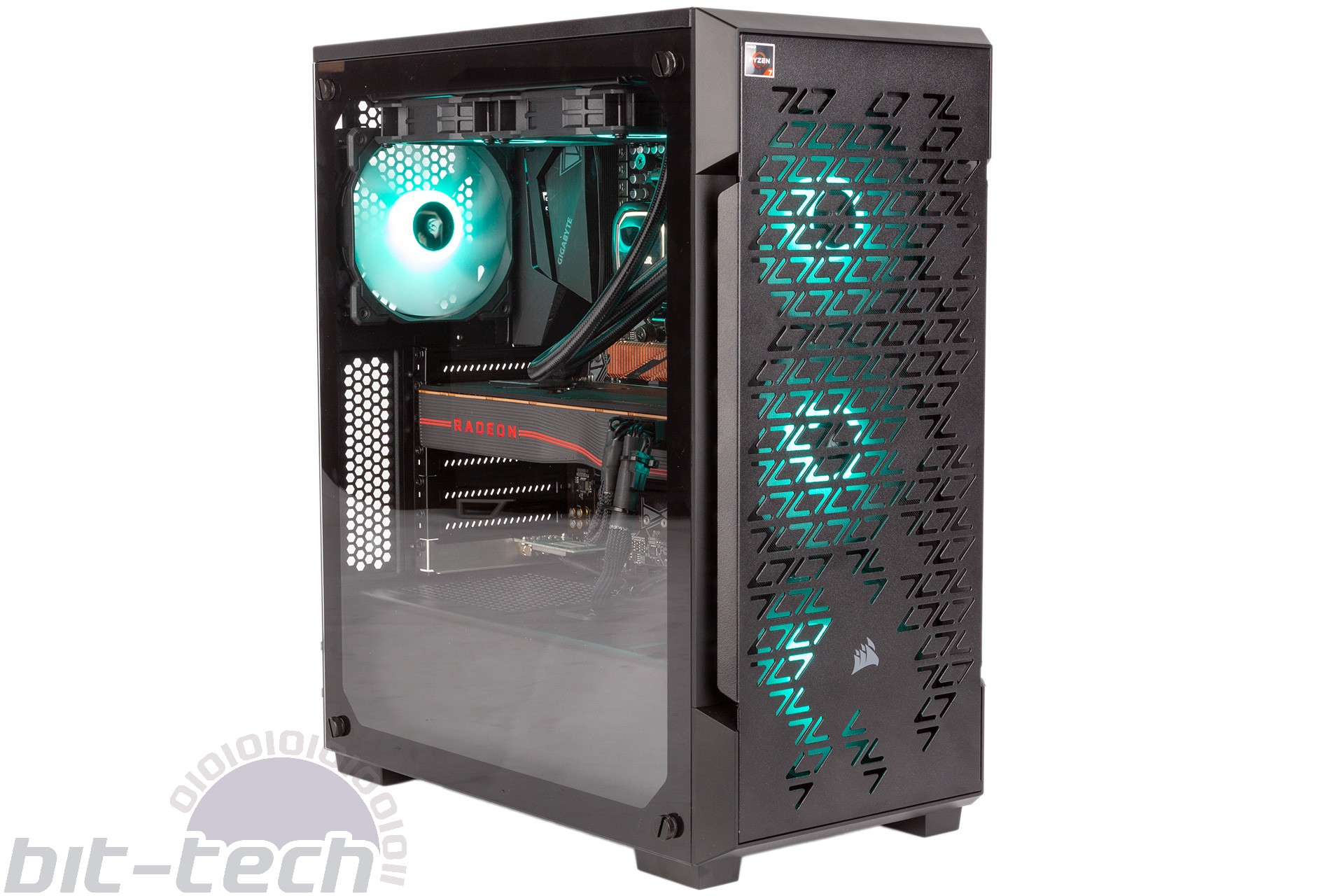
As for assembly, things are good overall but not ideal. The system is very tidy despite the small case and limiting routing space, and there were no major issues on the hardware or software side. The exception is having the front fans run at full speed at all times. It’s totally unnecessary and makes the system much louder than it needs to be. The front and rear fans should have been tuned in the EFI to be limited to a maximum fan speed that’s much more pleasant on the ears. After all, the advantage of filling up all the fan slots in a case like this is being able to do just that.
Lastly, there’s value. Tallied up, the same components plus a Windows license at retail will set you back around £1,780, so you’re effectively paying £60 to have someone build it all for you and chuck in some half-decent warranty terms on top – not bad by any means, but not the best we’ve seen.
Pull all this together and you have a system that’s decent but never outstanding in one area. Had the component selection been spot on, the assembly perfect, or the value truly outstanding, we’d recommend it with a caveat or two, but as it stands, the Novatech Elite Spectre requires user input to optimise the configuration and isn’t as well put together as it should be, especially in terms of noise, meaning the premium you pay has to be called into question.

MSI MPG Velox 100R Chassis Review
October 14 2021 | 15:04

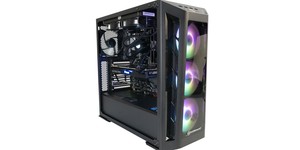
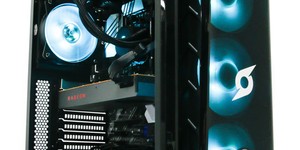
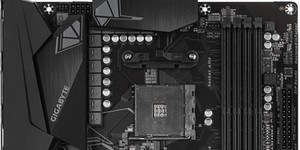




Want to comment? Please log in.